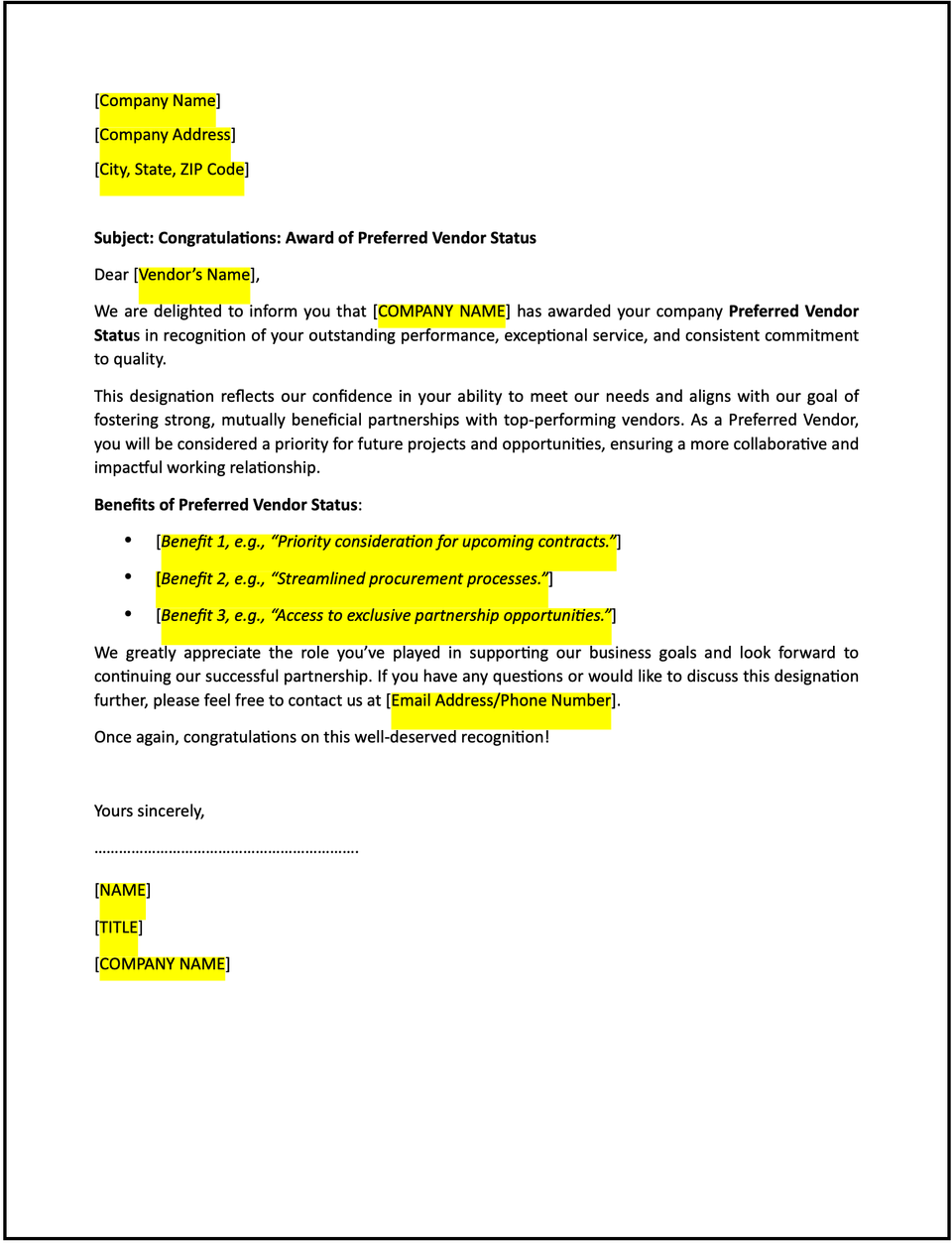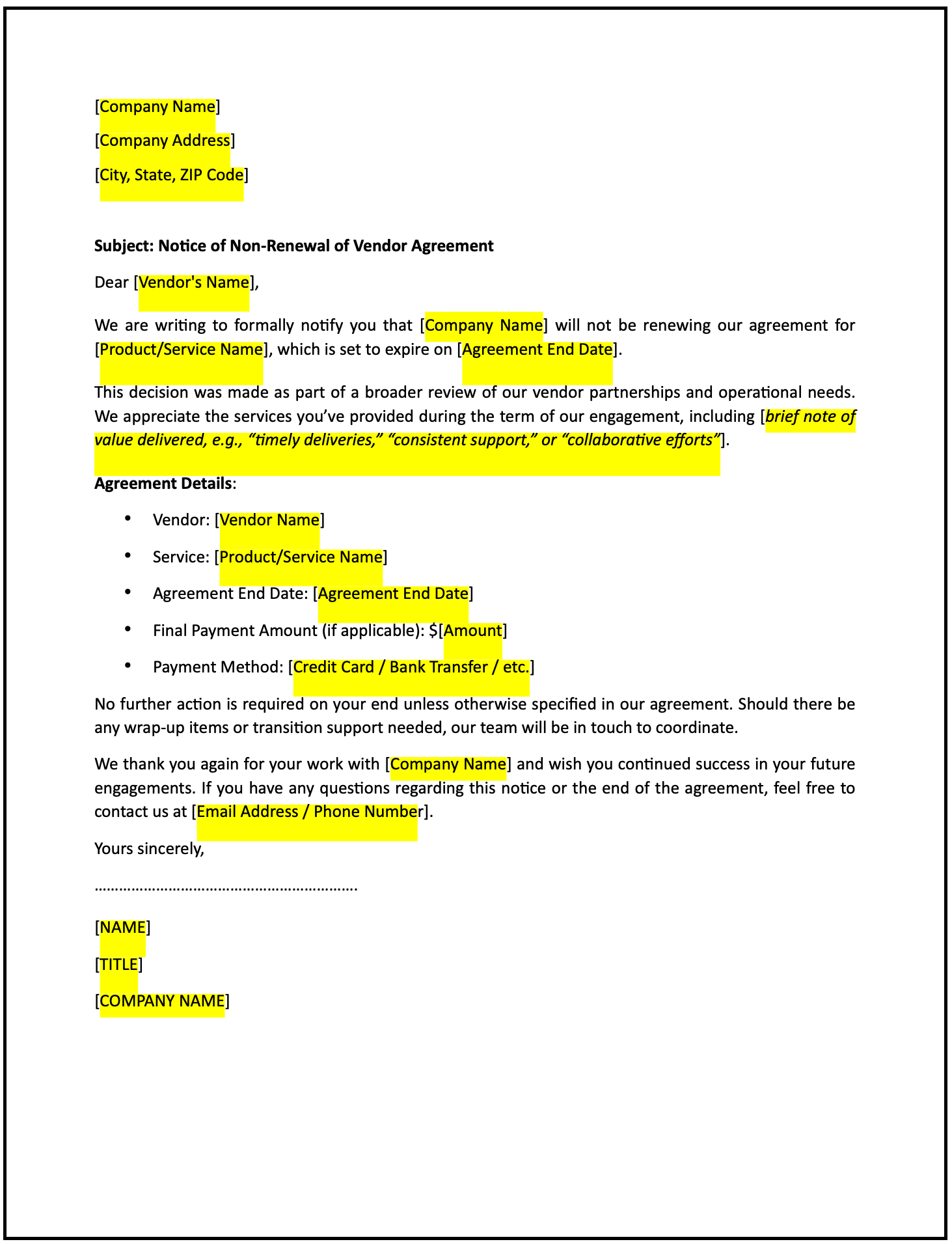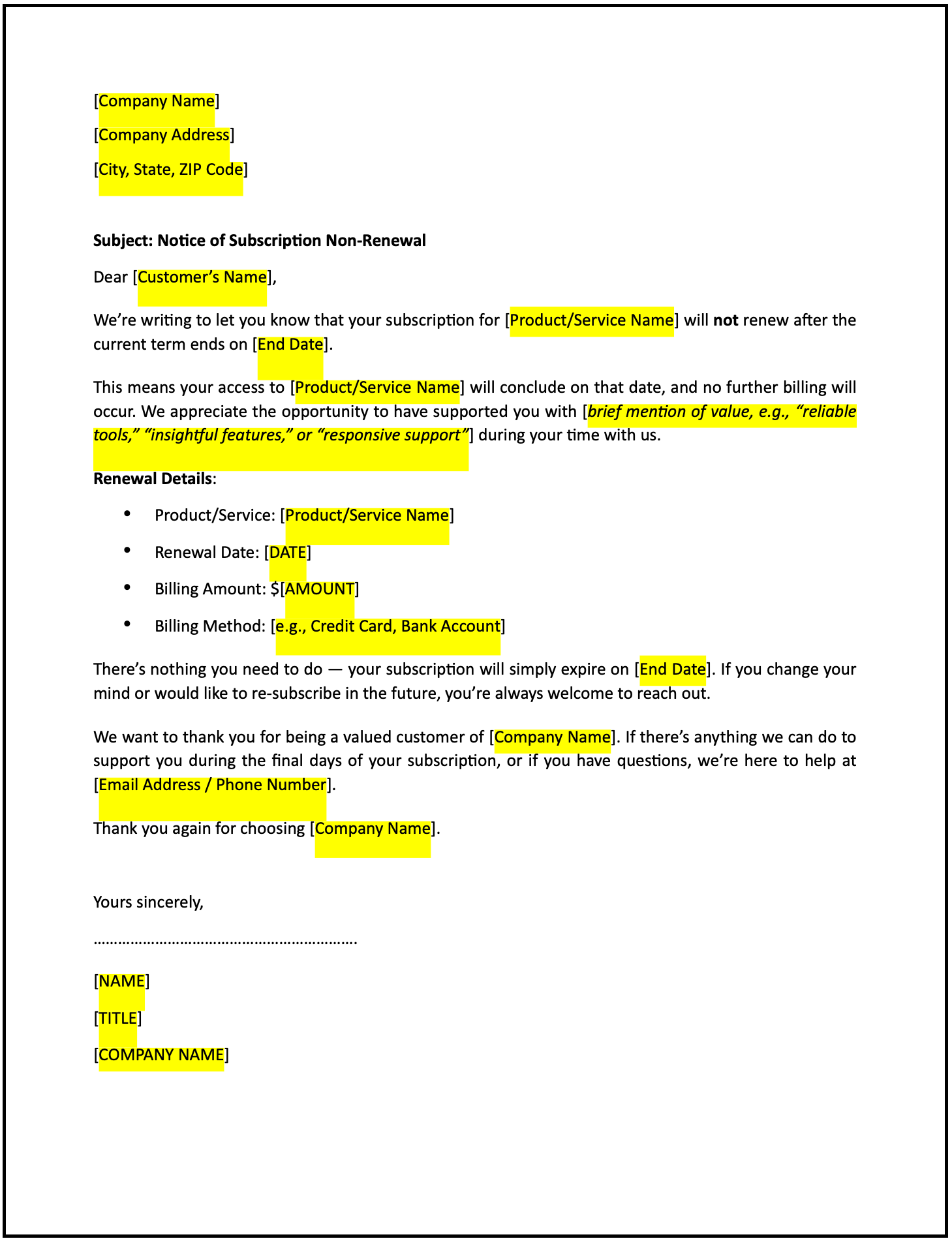Notification letter of preferred vendor status award: Free template

Notification letter of preferred vendor status award
A notification letter of preferred vendor status award is a formal communication used to inform a vendor or supplier that they have been recognized as a preferred provider. This letter highlights the benefits of the status, expectations for the partnership, and next steps to maintain the relationship.
How to use this notification letter of preferred vendor status award
- Open with an introduction: Address the recipient respectfully and express gratitude for their contributions to your organization.
- Announce the award: Clearly state that the vendor has been awarded preferred vendor status and briefly explain what it signifies.
- Provide context: Highlight the reasons for the recognition, such as consistent quality, reliability, or excellent service.
- Outline benefits: Describe the advantages of preferred vendor status, such as priority consideration for contracts, exclusive opportunities, or access to resources.
- Set expectations: Reiterate performance standards, quality benchmarks, or other expectations tied to the preferred status.
- Encourage collaboration: Express enthusiasm for continuing the partnership and invite discussions on how to further strengthen the relationship.
- Maintain a professional tone: Ensure the letter is clear, respectful, and focused on fostering collaboration.
- Provide contact information: Include details for the recipient to reach out with questions or discuss the award further.
Benefits of using a notification letter of preferred vendor status award
This letter ensures a structured and professional way to recognize a vendor’s contributions while fostering trust and alignment. Here’s how it helps:
- Builds trust: Recognizing a vendor’s achievements strengthens the relationship.
- Reflects professionalism: A well-crafted letter demonstrates respect and appreciation.
- Encourages alignment: Clearly outlining expectations ensures continued high performance.
- Promotes collaboration: Highlighting mutual benefits fosters a stronger partnership.
- Celebrates achievements: Recognizing excellence motivates vendors to maintain and improve standards.
Tips for writing an effective notification letter of preferred vendor status award
- Be specific: Clearly describe the reasons for the award and the benefits associated with the status.
- Use professional language: Maintain a respectful and appreciative tone to foster collaboration.
- Provide context: Briefly explain how the vendor’s performance has supported your organization’s goals.
- Highlight mutual benefits: Emphasize how preferred vendor status benefits both parties.
- Include actionable steps: Share instructions for leveraging the preferred status or maintaining performance standards.
- Keep it concise: Focus on the essential points while ensuring the tone is professional and engaging.
Frequently asked questions (FAQs)
Q: What details should I include in this letter?
A: Include the reasons for the award, the benefits of the status, and expectations for continued performance.
Q: Should I personalize the letter?
A: Yes, addressing the vendor by name and referencing their specific contributions demonstrates attentiveness and respect.
Q: Who typically sends this letter?
A: Procurement managers, operations teams, or business owners typically send this letter.
Q: How formal should this letter be?
A: The tone should be professional, respectful, and celebratory to foster trust and alignment.
Q: When should this letter be sent?
A: Send the letter promptly after the decision to award the preferred vendor status is finalized.
Q: Can this letter include terms for maintaining the status?
A: Yes, including performance standards or benchmarks helps set clear expectations.
Q: Is acknowledgment from the recipient required?
A: While not mandatory, requesting acknowledgment ensures the vendor understands and accepts the recognition.
This article contains general legal information and does not contain legal advice. Cobrief is not a law firm or a substitute for an attorney or law firm. The law is complex and changes often. For legal advice, please ask a lawyer.


